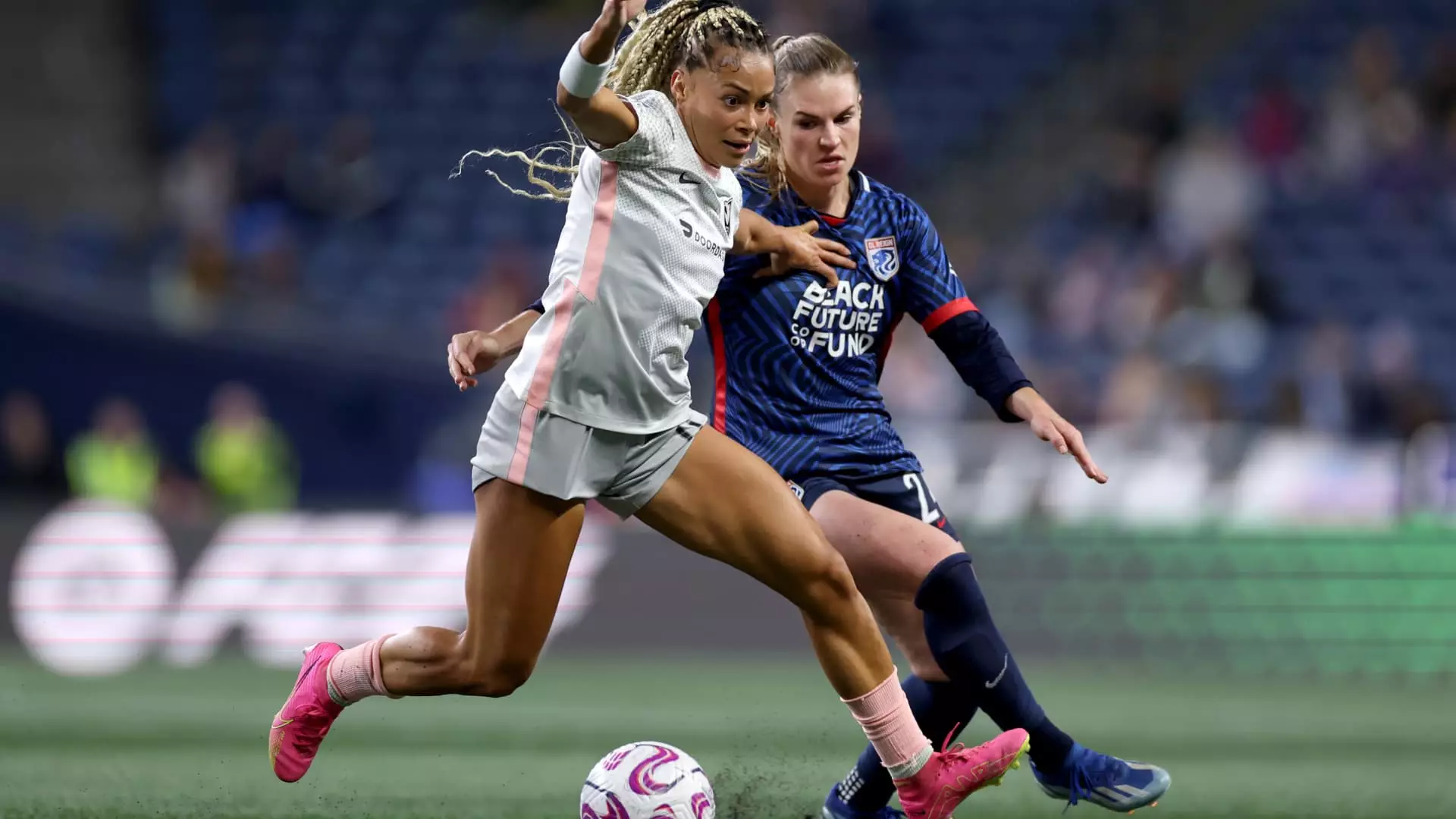Over the last few years, the landscape of women’s soccer in the United States has seen a dramatic transformation, driven largely by the infusion of private equity capital. As the National Women’s Soccer League (NWSL) leads the charge in opening its doors to private equity investors, a seismic shift is occurring within the realm of professional sports. Unlike other major leagues, such as Major League Soccer (MLS) or the National Football League (NFL), the NWSL has permitted private equity firms to acquire majority stakes in its franchises. This groundbreaking approach holds the potential to redefine the commercial dynamics of women’s sports.
Jessica Berman, NWSL commissioner, has recognized the significance of institutional capital in the development of women’s soccer. “We really see institutional capital as a way to really infuse additional capital behind our assets,” she explained in a recent interview. This sentiment marks a pivotal moment in a sport that has long struggled for equitable investment. The first bold move came when Sixth Street acquired the San Francisco-based Bay FC for a historic $54 million, a calculation that reflects the increasing confidence in women’s sports.
A more recent example comes from Carlyle, which partnered with the Seattle Sounders FC to purchase Reign FC, valuing the franchise at an impressive $58 million. This rapid valuation increase—up from just $3.5 million five years ago—demonstrates a significant shift in perception and expectations surrounding women’s soccer. Such financial maneuvers suggest that private equity players are foreseeing lucrative returns in women’s sports, particularly as participation and viewership continue to surge.
The NWSL has recently reported a remarkable attendance increase of more than 40% this season. Carlyle’s head of private credit, Alex Popov, emphasized that these growth metrics indicate an inflection point for the sport. “We’re seeing it for the right reasons,” he noted, emphasizing the collective effort required to sustain and amplify this positive trajectory. The infusion of capital from private equity firms is being positioned as a pivotal factor in advancing these efforts.
Furthermore, the revenue potential for women’s elite sports is poised to cross the $1 billion threshold for the first time, with soccer accounting for a substantial portion of that figure. Notably, this revenue stream fluctuates more towards merchandise sales, ticketing, and sponsorships, compared to the media rights that dominate men’s sports. However, the recent $240 million media deal struck by the NWSL—40 times greater than their previous arrangement—indicates that the tides are shifting toward greater financial opportunities in broadcasting.
Maya Mendoza-Exstrom, the chief business officer of Reign FC, discussed the intrinsic value of women’s sports in relation to these investments. According to Mendoza-Exstrom, private equity firms like Carlyle bring an array of resources that can harness analytics and strategic expertise from their other portfolio entities. The call for running a sustainable and profitable operation resounds strongly in the context of women’s soccer. “So we’ve got to make smart choices,” she stated, highlighting the urgency to develop a product on-field that matches the growing interest off-field.
As the landscape evolves, media deals and sponsorship arrangements are crucial. Major entities, like Disney, are eyeing acquisitions in the NWSL, with reports indicating that Disney CEO Bob Iger and his wife, Willow Bay, are nearing a deal for Angel City FC at a valuation that would set new records for women’s sports franchises. Such interest from prominent players further validates the growing significance of women’s soccer within the broader sports ecosystem.
Despite these promising developments, Berman cautioned against rushing into uncharted territory. “We are treading carefully because institutional capital is very different from the types of individual owners who have typically carried the stewardship of teams,” she remarked. Even as the league experiences unprecedented investment interest, it recognizes the need for a steady approach in navigating this new dynamic.
The cautious stance taken by the NWSL could inform the decision-making processes in other leagues, where discussions regarding private equity’s role are ongoing, such as in the NBA and NFL. As private equity continues to infiltrate women’s soccer, all eyes will be on the NWSL, setting the stage for potential shifts across various sports.
The emergence of private equity in women’s soccer marks a new chapter filled with both significant opportunities and potential pitfalls, as stakeholders strive for long-term sustainability and growth in this dynamic arena. The future of women’s soccer is brighter than ever, but the path forward requires careful navigation to ensure that the sport’s intrinsic values align with commercial ambitions.


Leave a Reply